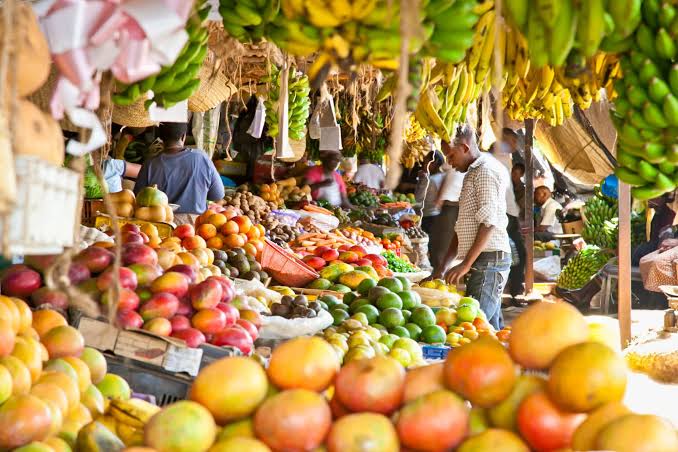SSBs Tax: MAN, NACCIMA, NESG Back Food & Beverage Industry
...Insist Increasing Tax May Stifle ‘Vital Economic Pillar’

By Obaro Ezikefe
The Manufacturers Association of Nigeria (MAN), Nigerian Association of Chambers of Commerce, Industry, Mines and Agriculture (NACCIMA) and the Nigeria Economic Summit Group (NESG) have urged the Federal Government to disregard the current campaigns to increase the Sugar-Sweetened Beverages (SSBs) Tax from N10 per litre to N30 per litre.
The major sectoral groups argued that further increase in the tax will amount to straining the Food & Beverage Sector of the Nigerian economy, which they describe as “the vital economic pillar.”
They stated this at a recent meeting to review the SSBs Tax being championed by the Corporate Accountability and Public Participation Africa (CAPPA), insisting that the manufacturing sector and particularly the food and beverage sub-sector remain crucial to every economy of the world.
They also argued that current realities in the country are not markedly different from global realities, adding that in recent years, the performance and contribution of the manufacturing sector to the Nigerian economy has grown in value and relevance.
Quoting data from the World Trade Organisation (WTO), the groups said the food and beverage sector is estimated to contribute 22.5 percent of the manufacturing industry value, generating an estimated 1.5 million jobs and 4.6 per cent of the country’s Gross Domestic Product (GDP).
Director-General of MAN, Mr. Segun Ajayi Kadiri, said: “The Food and Beverage sector encompasses a wide range of businesses, including restaurants, cafes, food producers, and beverage manufacturers. It provides employment opportunities, contributes to exports and plays a pivotal role in stimulating economic growth. Beyond its economic value, the industry forms the very fabric of our daily lives, shaping our culture and social interactions.”
The groups lamented that in recent years, the food and beverage industry has been grappling with excessive taxation, which is gradually eroding its contribution to the nation’s GDP, adding that the recent call for increase in SSBs Tax from N10 per litre to N30 per litre poses potential threat to the operations of the critical sector of the Nigerian economy.
The leading sectoral groups concluded that a balanced approach to taxation, taking into consideration the unique challenges of this sector, is essential to ensure its continued growth and contribution to the nation’s GDP.
“Striking the right balance between tax revenue generation and economic sustainability will be pivotal in preserving this vital economic pillar while fostering growth and innovation in the industry,” they said.
The recent call for the SSBs Tax increase is being fueled by CAPPA, which hinged its argument on the claim that the consumption of sugary drinks is a known risk factor for ailments such as type 2 diabetes, heart disease, stroke and cancer. They have repeatedly stated that increasing levies on sugar-sweetened beverages could be the way out in mitigating communicable diseases like obesity and diabetes.
Their claims have, however, been deflated by health experts, who have explained that a balanced nutritional approach, which allows for the occasional indulgence in sugary beverages, can harmonize with a healthy lifestyle and dispel misconceptions about their influence on obesity and related health issues.
They also stated that obesity fundamentally revolves around the balance of energy – calories consumed versus calories expended. Excessive calorie intake from any source can lead to weight gain, not just sugar. Sugar-sweetened beverages can be part of a balanced diet if their calorie intake is considered.
Experts also stated that the surge in obesity cannot be solely ascribed to sugar. Inactive lifestyles, lack of physical activity, and overall poor dietary choices play a significant role in the obesity epidemic. Consuming sugary beverages in moderation is acceptable when integrated into a balanced lifestyle that includes regular exercise.
Industry watchers are, however, of the opinion that CAPPA and its likes canvassing for increase in SSB Tax may be paid agents with the sole aim of just stifling the operations of the Food and Beverage Industry with burdened taxes and not necessarily because of any health implications of the consumption of the sugar sweetened beverages.
This recent call has become worrisome in view of the fact that the industry has in recent time been burdened with excessive taxes. Continuous imposition of taxes has its implications that may likely affect the country negatively.
Recall that over the years, many multinational companies have been forced to relocate their operations out of the country due to harsh and non-conducive operational environment that have impeded ease of doing business.
The fear being raised by industry watchers is that Nigeria may once more witnessed mass exodus of beverage industries for the nation’s business landscape if the Federal Government goes ahead to implement the increase in the SSB Tax.
The consequences of excessive taxation on the food and beverage industry are far-reaching, affecting not only businesses but the entire nation’s economy one of which is the likely reduction in contribution to the GDP.
This is because excessive taxation will lead to reduced economic activity in the industry, with the ultimate effect of causing a decline in its contribution to the nation’s GDP. This, in turn, diminishes the sector’s ability to create jobs and drive economic growth.
Excessive taxation will also stifle innovation in the industry as it will limit the ability of businesses to invest in research and development, leading to decreased innovation and competitiveness. This will hamper the sector’s long-term sustainability.











